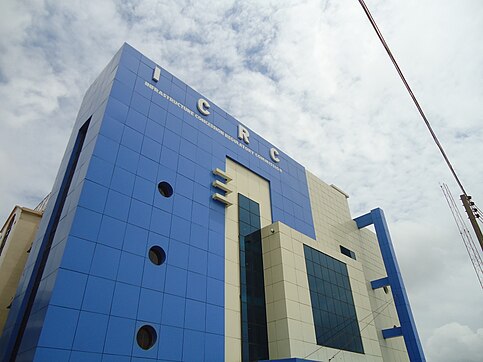A public–private partnership is a long-term arrangement between a government and private sector institutions. Typically, it involves private capital financing government projects and services up-front, and then drawing revenues from taxpayers and/or users for profit over the course of the PPP contract. Public–private partnerships have been implemented in multiple countries and are primarily used for infrastructure projects. Although they are not necessary, PPPs have been employed for building, equipping, operating and maintaining schools, hospitals, transport systems, and water and sewerage systems.
Build–operate–transfer (BOT) or build–own–operate–transfer (BOOT) is a form of project delivery method, usually for large-scale infrastructure projects, wherein a private entity receives a concession from the public sector to finance, design, construct, own, and operate a facility stated in the concession contract. The private entity will have the right to operate it for a set period of time. This enables the project proponent to recover its investment and operating and maintenance expenses in the project.
Project finance is the long-term financing of infrastructure and industrial projects based upon the projected cash flows of the project rather than the balance sheets of its sponsors. Usually, a project financing structure involves a number of equity investors, known as 'sponsors', and a 'syndicate' of banks or other lending institutions that provide loans to the operation. They are most commonly non-recourse loans, which are secured by the project assets and paid entirely from project cash flow, rather than from the general assets or creditworthiness of the project sponsors, a decision in part supported by financial modeling; see Project finance model. The financing is typically secured by all of the project assets, including the revenue-producing contracts. Project lenders are given a lien on all of these assets and are able to assume control of a project if the project company has difficulties complying with the loan terms.

Government procurement or public procurement is the procurement of goods, services and works on behalf of a public authority, such as a government agency. Amounting to 12 percent of global GDP in 2018, government procurement accounts for a substantial part of the global economy.
Access to at least basic water increased from 94% to 97% between 2000 and 2015; an increase in access to at least basic sanitation from 73% to 86% in the same period;
The chief compliance officer (CCO) is a corporate executive within the C-suite responsible for overseeing and managing regulatory compliance issues within an organization. The CCO typically reports to the chief executive officer or the chief legal officer.

Drinking water supply and sanitation in Argentina is characterized by relatively low tariffs, mostly reasonable service quality, low levels of metering and high levels of consumption for those with access to services. At the same time, according to the WHO, 21% of the total population remains without access to house connections and 52% of the urban population do not have access to sewerage. The responsibility for operating and maintaining water and sanitation services rests with 19 provincial water and sewer companies, more than 100 municipalities and more than 950 cooperatives, the latter operating primarily in small towns. Among the largest water and sewer companies are Agua y Saneamientos Argentinos (AYSA) and Aguas Bonarenses S.A. (ABSA), both operating in Greater Buenos Aires, Aguas Provinciales de Santa Fe, and Aguas Cordobesas SA, all of them now publicly owned. In 2008 there were still a few private concessions, such as Aguas de Salta SA, which is majority-owned by Argentine investors, and Obras Sanitarias de Mendoza (OSM).

Public/social/private partnerships are methods of co-operation between private and government bodies.
The Office of Financial Institutions (OFI) is an agency of the United States federal government in the United States Department of the Treasury. OFI coordinates the department's efforts regarding financial institutions legislation and regulation, legislation affecting Federal agencies that regulate or insure financial institutions, and securities markets legislation and regulation. The office coordinates the department's efforts on financial education policy and ensuring the resiliency of the financial services sector in the wake of a terrorist attack.
Irrigation in Brazil has been developed through the use of different models. Public involvement in irrigation is relatively new while private investment has traditionally been responsible for irrigation development. Private irrigation predominates in the populated South, Southeast, and Center-West regions with most of the country’s agricultural and industrial development. In the Northeast region, investments made by the public sector seek to stimulate regional development in an area prone to droughts and with serious social problems. These different approaches have resulted in diverse outcomes. Of the 120 million hectares (ha) that are potentially available for agriculture, only about 3.5 million ha are under irrigation, although estimates show that 29 million ha are suitable for this practice.

The Ministry of Mines is the ministry in the Government of India. The ministry functions as the primary body for the formulation and administration of laws relating to mines in India. The head of the ministry is Pralhad Joshi, who has been serving since June 2019.

Nigeria Vision 2020 was a strategic framework for the Federal Republic of Nigeria to develop its economic and political strength to the point by 2020, “Nigeria will be one of the 20 largest economies in the world, able to consolidate its leadership role in Africa and establish itself as a significant player in the global economic and political arena.”
The Federal Ministry of Budget and Economic Planning is one of the Federal Ministries of Nigeria.

Adefemi Kila is a Nigerian politician and engineer who served in the Senate, representing Ekiti Central in April 2007 just after working for Julius Berger Nigerian Plc for 30 years as a civil engineer and as a technical manager (administration) for 18 years. He is currently a council member of Standards Organisation of Nigeria SON. He is a devoted Christian of the Anglican church of Nigeria.
Water supply and sanitation in Malaysia is characterised by numerous achievements, as well as some challenges. Universal access to water supply at affordable tariffs is a substantial achievement. The government has also shown a commitment to make the sector more efficient, to create a sustainable funding mechanism and to improve the customer orientation of service providers through sector reforms enacted in 2006. The reform creates a modern institutional structure for the water sector, including an autonomous regulatory agency, an asset management company and commercialised state water companies that have to reach certain key performance indicators that will be monitored by the regulatory agency. The government has also stated its intention not to embark on new private sector contracts for water provision, after a bout of such contracts during the 1990s showed mixed results.

The public–private partnership is a commercial legal relationship defined by the Government of India in 2011 as "an arrangement between a statutory / government owned entity on one side and a private sector entity on the other, for the provision of public assets and/or public services, through investments being made and/or management being undertaken by the private sector entity, for a specified period of time, where there is well defined allocation of risk between the private sector and the public entity and the private entity receives performance linked payments that conform to specified and pre-determined performance standards, measurable by the public entity or its representative".
Public–private partnerships in transition economies have become increasingly popular since 1990. They are based on the experience of Public- Private Partnerships (PPPs) in developed countries since the model again became popular in the 1980s. PPP has yet to prove that it is appropriate in transition economies because of political and economic differences.

Responsibility of water supply in Nigeria is shared between three (3) levels of government – federal, state and local. The federal government is in charge of water resources management; state governments have the primary responsibility for urban water supply; and local governments together with communities are responsible for rural water supply. The responsibility for sanitation is not clearly defined.
The Presidential Enabling Business Environment Council (PEBEC) is a specialized agency set up by the President of Nigeria for Nigerian businesses. Its purpose is to make sure that doing business in Nigeria is easy through reforms and policies.











